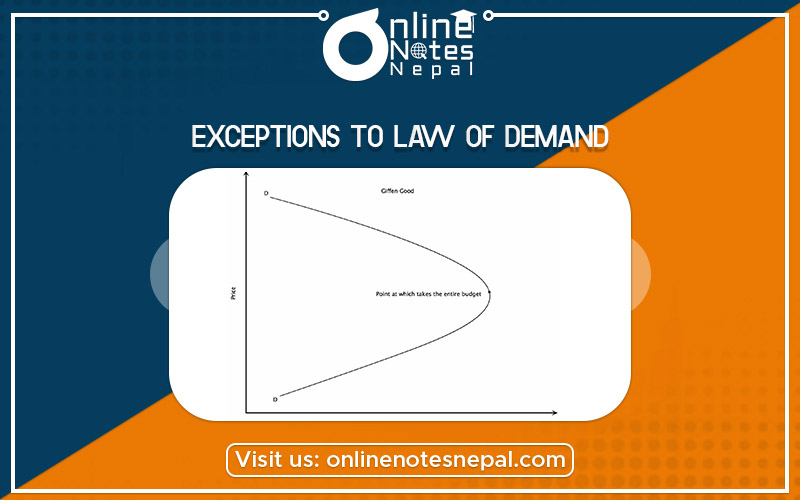Published by: Zaya
Published date: 15 Jun 2021

The exceptions to the Law of Demand are described below:
Giffen goods are inferior goods whose demand increases with the increase in their prices. There are several inferior commodities, much cheaper than the superior substitutes often consumed by poor households as an essential commodity. Whenever the price of the Giffen goods increases its quantity demanded also increases. It is because with an increase in the price, and the income remains the same, the poor people cut the consumption of superior substitutes and buy more quantities of Giffen goods to meet their basic needs.
Another exception to the law of demand is given by the economist Thorstein Veblen, who proposed the concept of "Conspicuous Consumption". According to Veblen, there is a certain group of people who measure the utility of the commodity purely by its price, which means, they think that higher-priced goods and services derive more utility than the lesser-priced commodities.
For example, goods like a diamond, platinum, ruby, etc. are bought by the upper echelons of the society (rich class) for whom the higher the price of these goods, the higher is the prestige value and ultimately the higher is the utility or desirability of them.
When the consumer expects that the price of a commodity is likely to further increase in the future, then he will buy more of it despite its increased price in order to escape himself from the pinch of a much higher price in the future.
On the other hand, if the consumer expects the price of the commodity to further fall in the future, then he will likely postpone his purchase despite less price of the commodity in order to avail the benefits of much lower prices in the future.
Often people are misconceived as high-priced commodities are better than low-priced commodities and rest their purchase decision on such a notion. They buy those commodities whose prices are relatively higher than the substitutes.
During emergencies such as war, natural calamity- flood, drought, earthquake, etc., the law of demand becomes ineffective. In such situations, people often fear a shortage of essentials. Hence, they demand more goods and services even at higher prices.
The change in fashion trends and tastes and preferences of the consumers negates the effect of the law of demand. The consumer tends to buy those commodities which are very much ‘in’ in the market even at higher prices.
There are certain commodities that have become essentials of modern life. These are the goods which consumer buys irrespective of an increase in the price. For example TV, refrigerator, automobiles, washing machines, air conditioners, etc.
This is the most common type of exception to the law of demand wherein the consumer tries to purchase those commodities which are bought by his friends, relatives, or neighbors. Here, the person tries to emulate the buying behavior and patterns of the group to which he belongs irrespective of the price of the commodity.
For example, if the majority of group members have smartphones then the consumer will also demand the smartphone even if the prices are high.
Thus, these are some of the exceptions to the law of demand where the demand curve is upward sloping, i.e. the demand increases with an increase in the price and decreases with the decrease in price.